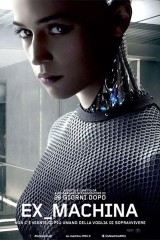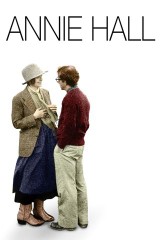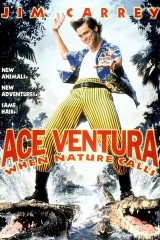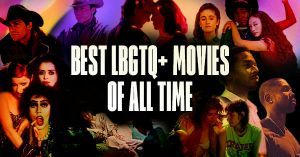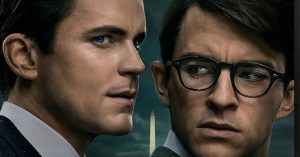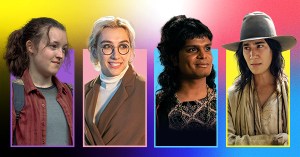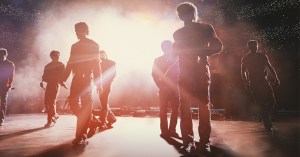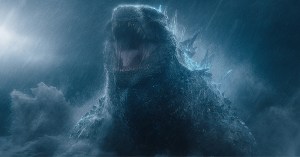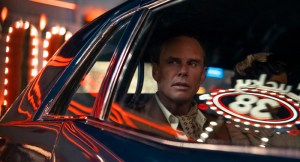Simon Pegg’s Five Favorite Films
Pegg gushes about Diane Keaton and explains why a rhino giving birth to Jim Carrey is a work of comic genius.
 Astrid Stawiarz/Getty Images
Astrid Stawiarz/Getty ImagesThough he’s widely recognizable these days as the current Star Trek franchise‘s “Scotty” and the Mission: Impossible franchise’s IMF technician Benji, Simon Pegg first caught the attention of movie buffs in 2004’s Shaun of the Dead, a zom-com co-starring Nick Frost and directed by Edgar Wright. It was the first in a trilogy of hilarious, wildly clever comedies steeped in pop culture geekery dubbed the Three Flavours Cornetto, and it rightly earned the trio a wider cult following.
Since then, of course, Pegg has branched out and found work in a variety of genres, including the blockbuster series mentioned above, but he likes to keep busy with smaller projects in the meantime. This week, for example, he stars opposite Margot Robbie in Terminal, a stylized crime thriller that interweaves a number of connected stories.
We should note that Simon Pegg has done a Five Favorite Films with us before, and as we began chatting with him about it this time, he admitted that “there are films which have staked their claim in my affection forever. The ones that stay with me and remain my kind of go-to cinematic events, I would imagine, stay the same.” Read on for Simon Pegg’s updated list of Five Favorite Films!
Ryan Fujitani for Rotten Tomatoes: So I’m here talking to you because of Terminal. I haven’t seen the film, but it looks like a twisty tale with a lot of interlocking storylines. What can you tell me about the film and your role in it?
Simon Pegg: I took it on because I was sent the script by essentially what were a group of assistant directors who had been working on various films in the UK who had decided to say, “Actually, we are producers, and we’re going to make a feature film.” We have Margot attached, which is great, which gives it some momentum. But there’s also this script, which is a really dense, almost theatrical kind of dialogue piece, which I really liked the idea of doing.
I’ve done a lot of stuff where I’ve been essentially running around saving the universe or delivering exposition or whatever my British accent is required to do. I felt like I really wanted to do something that was a bit more chewy and a bit more involved, in terms of the acting. When I read it, it was just a lot of me sitting in a café with Margot’s character just talking about death. It felt like a play. It felt like a kind of a Pinter or something, and I was like, this is great.
I also just loved the fact that it was a fresh idea. It was an original script, and it was made by a bunch of people who just wanted to make a movie. That really appealed to me in terms of how I started out. I never want to lose touch with that kind of filmmaking. It’s important. It’s so fun being in big films. It’s a real thrill ride. But I don’t want to untether myself from the beginnings of what I love doing, which was smaller movies.
It’s very dialogue-led. It’s very character-led, particularly with my character, Bill, who’s a terminally ill English professor, who is deciding whether or not to just kill himself. It just felt like, “Wow, this is going to be a chance to actually do some acting.” Also to act alongside Margot, who is fantastic — you know, already set the world on fire with The Wolf of Wall Street — seemed like an exciting person to spar with. I just thought this is going to be great. I get to go to Budapest and get that feel of making a small movie, which is a lot more hard and fast than it is making a big film. There’s less room to wiggle. There’s less waste. There’s less relying on post-production. You just have to get it done. It feels like everyone is in it together. It’s like a little battle you’re fighting. I like doing that.
RT: Knowing you’re something of a geek culture junkie, I’m wondering, between the Mission: Impossible franchise and the Star Trek franchise, which of them was more exciting for you to land?
Pegg: That’s an interesting question. I think maybe for the sheer significance to me as a person, Star Trek was a big deal because the Mission: Impossible series was a little bit before my time. But the chance to work with Tom Cruise and Ving Rhames and J.J. was obviously a big deal. Now, I couldn’t really distinguish between them in terms of my affection. Although, having said that, having written Star Trek: Beyond and been that close to it, having actually gotten to generate some of the universe, I have a special affection for Star Trek. Probably Star Trek just because of its… It was a show that I watched from the age of eight, and then suddenly to be in it was kind of crazy. I think by the time I got Mission: Impossible, Mission: Impossible was a movie series. It wasn’t the TV show writ large anymore. It was such a joy to get back with the gang to do Fallout and have our new folks come in as well. It was great.
RT: What were your first thoughts when you learned about Quentin Tarantino’s involvement in the Star Trek universe?
Pegg: We were all like, “Wow, that’s great.” I mean, I can’t think of… All of Quentin’s movies, I could have put in those five films, you know? He’s such a dynamic filmmaker. He has such commitment and passion to cinema. I know he’s a huge Star Trek fan because we’d spoken about it in the past. He really likes our crew. He likes the new iteration of the original series crew. It was cool. They don’t tell us anything because they know we get put in this situation all the time, and we blab because we’re all just big mouths. So they don’t actually give us anything that we could possibly say. All I can tell you is that the prospect of him being involved is extremely exciting. I’d be very happy about it.
RT: I saw you were attached to a project with Nick Frost called Slaughterhouse Rulez. Have you spoken to Edgar Wright about potentially all of you reuniting again for another project at some point in the future?
Pegg: We always talk about it. Edgar is like family to me. We’ve been friends for a very long time. It’s not like he’s just my colleague. We see each other whenever we can, and we always talk about it when we get together. The only thing that holds it up is finding a moment when we’re all simultaneously free, because we’ve all got commitments leading up to a certain point. But yeah, it will happen. There’s no doubt in my mind. Edgar is working on something at the moment. I have a few things coming up. As soon as we get a nice big bit of free space, that’s what we will do.
Terminal opens in limited release this Friday, May 11. Read reviews for it here.



